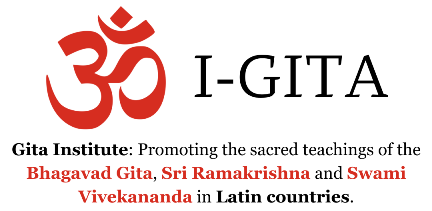Jainism and Business. Ahimsa, India

Ethical Principles of Jains (Jain Dharma). Non-Violence Ahimsa
The Subject “Jainism, Ethics and Business” consist of two parts:
- Introduction to Jainism (Jain Dharma)
- Jain Businesspeople
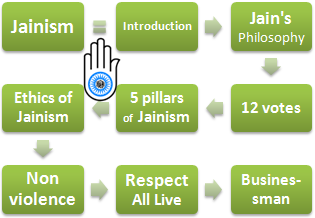
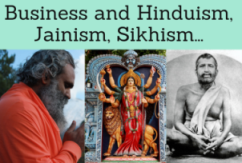
“Any living organism deserves our respect.”
1- Jainism
- Introduction to Jainism
- The figure of Mahavira
- Jain Schools:
- Svetambaras
- Digambaras
- Doctrines of Jainism
- Jain Scriptures “SHANTINATHA CHARITHRA”
- Fundamentals of Jainism philosophy (“Tattva”)
- Twelve Votes of Jainism
- The Five pillars of Jainism
- Ethical Principles of Jainism
- Jainism and Non-Violence (Ahimsa)
- Respect for all life
- Relationships between Jainism and Hinduism
- Influence of Jainism on the Hindu Economic Area
- Jainism and business
2- Jain Businesspeople.
- Jain family Sahu Jain
- Gautam Adani
- Bhavarlal Jain
- Ajit Gulabchand
- Anand Jain
- Other Jain Businessman
Jainism, Ethics and Business
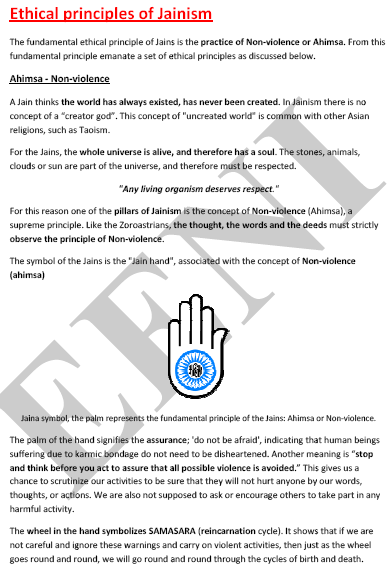

The objectives of the subject “Jainism, Ethics and Business” are the following:
- To know the fundamentals of Jainism
- To understand the ethical principles of Jainism
- To learn about the influence of Jainism on business
- To analyze prominent Jain Businesspeople
- To understand the influence of Jainism on the Hindu Civilization

The Subject “Jainism, Ethics and Business” belongs to the following Online Programs taught by EENI Global Business School:
Course: Indian Religions and Business.
Doctorate: Global Ethics, Religions, and International Business, Asian Business, World Trade.
Masters: International Business, Religions and Business.
Languages:  (or
(or  Jainismo
Jainismo  Jainisme
Jainisme  Jainismo).
Jainismo).
- Credits of the Subject “Indian Religions - Jainism”: 4

- Duration: 4 weeks
- Download the syllabus: “Indian Religions” (PDF)
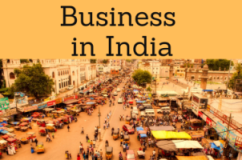
Jainism (Jain Dharma) is a religion born in India in the 6th-century BCE. in Vaishali (Bihar) as a heresy to Brahmanism. The creator of Jainism was Mahavira (549-477 BCE), a contemporary of Buddha, Confucius, and Lao-tzu. Jain people believe that Mahavira (the Great Hero) was the last one of the twenty-four holy men (Jina, winners) who lived before him.
In 2013 the UNESCO declared Jain scriptures “SHANTINATHA CHARITHRA” as interest and value for humanity, for their contributions to Peace, Non-Violence, and brotherhood.
Mahavira's teachings focus on releasing the soul (Jina) of material and guide it towards a divine consciousness and liberation (Moksha). Jain believes that the man is the absolute owner of his destiny.
For Jainist people, the whole universe is alive and therefore has a soul. The Stones, animals, clouds, or the sun are part of the universe, and therefore must be respected.
For this reason, one of the pillars of Jainism is the concept of Non-Violence (Ahimsa), a supreme principle. Like Zoroastrians, thoughts, words, and deeds must strictly observe the principle of Non-Violence.
The Jain Society is very active in protecting its core values, particularly on Ahimsa:
Influence of Jainism on the Constitution of India: “Constitution does not permit any citizen to claim that it is his fundamental right to take life and kill animals.”
By practising Non-Violence, historically has led Jain people to dedicate more to business and trade than agriculture (they think that tilling a field can kill many insects) and livestock. Therefore, they tend to have a much higher education than the average of the Indian people. Jain people are extremely dynamics in all the aspects of business.
Prominent Jainist has participated in the construction of India since the independence.
The Jain community is strongly organized in charities Organizations that support the cultural and educational initiatives and is also somewhat like a “business lobbies.”
Jainism became the official religion in many states of India, but its decline has been remarkable, especially after the Muslim invasion. Approximately there are between 5 and 6 million Jains in India especially in the states of Bengal, Rajasthan, Maharashtra, Gujarat, and Karnataka.
Despite its small number of followers, its influence on politics, economy, and culture of India is crucial.
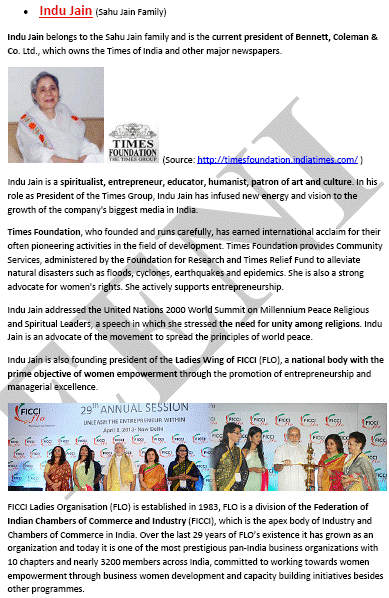
Jainism
- Religion: Jainism (Jaina Dharma)
- Mahavira (549-477 BCE)
- God: Tirthankaras
- Date: 6th-century BCE
- Holy City: Valabhipura, Sravana Belgola (Karnataka)
- Sacred texts: “Upanga and Anga,” “Prakimata,” “Mulasutra”
- Country: India
- Major schools
- Svetambaras, the “white dresses”
- Digambaras, the “naked”
Jain Symbol Ahimsa = Non-Violence.

Other Jain Businessman:
- Anand Jain (1957) President of Jai Corp Limited
- Lalchand Hirachand Doshi (1904-1993) Businessman (Walchandnagar Industries), philanthropist, and Jain social leader
- Sir Seth Hukum Chand Jain (Indore 1874-1959) businessperson and Jain leader
- Vinay Maloo (1961) is the founder and President of Enso Group
- Motilal Oswal, President and General Director of Motilal Oswal Financial Services
- Narendra Patni (1943), Founder and President of Patni Computer Systems (Igate)
- Anshuman Jain (1963) Co-Managing Director (CEO) of Deutsche Bank
- Naveen K. Jain (1959) founder of InfoSpace, Intelius and Luna Express


(c) EENI Global Business School (1995-2024)
We do not use cookies
Top of this page




